|
In high school we had a religion teacher, named Mr. Matthews, who used to tell us not to worry about memorizing anything from his class but these words: “Love God with your whole mind, heart, soul and strength. Love your neighbor as yourself.” He would say, “If you come back and see me twenty years from now, I’ll be happy if those words are all you remember.” Mr. Matthew’s motto was inspired of course by Matthew 22:34-40, which happens to be today’s Gospel reading for the [Optional] Memorial of Saint Louis of France. In this text, Jesus clarifies that love of God and love of neighbor are the two greatest commandments on which everything else depends. To put in another way – without love, we are nothing (1 Corinthians). The pandemic has shown just how much we need this love in our world. And while it may be challenging to connect with one another right now, there are still ways we can share love with others from wherever we happen to be. Three Small Ways of Loving God
Three Small Ways of Loving Neighbor
Remember also, we are called to “love your neighbor as yourself.” During this unique and challenging time, are you taking care of your own spiritual, emotional, and physical needs? If you aren’t sure, it may be worth spending some time today writing down a short list of ways you can practice healthy self-care. If you liked this article, be sure to check out “Living the Corporal and Spiritual Works of Mercy During COVID-19” and “Mental Health and Coronavirus.”
0 Comments
On one wall of my office, above shelves crammed with books on various theological topics, there are several framed diplomas and certificates like you would find in a doctor or lawyer’s office. I rarely look at that wall for any length of time, but, the other day, I did. At various times in my life as I was working on degrees and certificates to gain needed credentials or accomplish my work more effectively, attaining them was very important to me. Now, as I look at the wall, I am not very much impressed by the framed paper that is there. Of course, the degrees and such do permit me to teach and provide credibility for some when I present or write. But people matter more. Much of my time today is spent less with books and papers and more with people. In many ways, I am living out what my father challenged me to do when I was in my twenties.
One Sunday night many years ago (I called each week on Sunday at 7 p.m.), I was talking with my father and whining that I might not get the final grade that I hoped in a course that semester. It was very important to me to have good grades, as if my worth depended on it. He listened very patiently and then said, “Frank, when someone knocks on the rectory door looking to talk with a priest, they will not care what grade you got. They will care only that you are willing to listen to them and be there for them.” Of course, he was very right. My father, who was a successful business person without any degrees, taught me what is at the heart of faith and living faith – God and people. The divine aspects of faith are always mediated through people as individuals and as groups – their needs, their struggles, their concerns, their pain, their suffering, their joy, their love, their sorrow. Faith is about people and their lives, their interaction with God, and their ultimate destiny. The teachings and customs of faith are not ends in themselves. Instead, they should lead to greater freedom and harmony among human beings. Yes, the twisting of teachings and customs of faith into something else has always happened over the millennia and continues to be a challenging reality. But that is simply using them for self-centered reasons, especially when used to justify hate and oppression. Faith ultimately is about freedom – the freedom to be fully human in union with God. It is a freedom given by God’s grace. Faith rooted in freedom moves outward to people and their needs. It is not focused on self, but on God and other people. As the Catechism of the Catholic Church teaches in number 1742: “The grace of Christ is not in the slightest way a rival of our freedom when this freedom accords with the sense of the true and the good that God has put in the human heart. On the contrary, as Christian experience attests especially in prayer, the more docile we are to the promptings of grace, the more we grow in inner freedom and confidence during trials, such as those we face in the pressures and constraints of the outer world. By the working of grace the Holy Spirit educates us in spiritual freedom in order to make us free collaborators in his work in the Church and in the world: Almighty and merciful God, in your goodness take away from us all that is harmful, so that, made ready both in mind and body, we may freely accomplish your will.” After 26 years of living out my vocation to the priesthood as a Pallottine, I can say with confidence again how right my father was. My prayer is that I have accompanied those who needed a listening ear and walked alongside them on their journey of faith, and that I will always continue to do so. May we as Christians remember to put people over paper and strive to live out our faith in true freedom. To become a person of prayer, we need to make every effort to live always in the presence of God. If we so live, there is every reason to believe that our life can gradually become one of ongoing prayer. St. Paul urges Christians to “Pray without ceasing.” The Holy Spirit makes this possible, and such a manner of praying becomes a way of life. If the presence of God is acknowledged through a constant spirit of inner prayer, we should find ourselves ever more prepared to enter into the more structured forms of prayer that are part of the Christian life. The Holy Spirit urges us to pray every moment. Faith is crucial to our prayer life. I think of the Gospel in which the father of the possessed boy says, “I do believe; help my unbelief.” We should enter into every moment of prayer recognizing our need for deepening our faith and acknowledging that God is Who He is and we are not God. We can pray, “Lord help remove my lack of trust, my lack of faith. If, Lord, you still find an unresolved cause for discouragement within me, some doubt, take it away and instill in me unquestioning faith.” Each day, my prayer life consists of four forms of prayer: The Divine Office, personal prayers and devotions, a daily rosary, and meditative prayer. I pray to the Sacred Heart of Jesus, the Holy Spirit, and Mary Immaculate by way of a prayer that truly reflects my devotion to each. My purpose for entering into such prayer is not only to give praise and honor to the person to whom I am praying at the moment, but also to use this time to pray both for people who have asked me to pray for them and also for oly SD people whom I know need prayer. Of course, I pray for myself and my own needs as well. God wants us to take a very personal approach to prayer; in other words, He wants us to be ourselves when we speak to Him. Meditative prayer asks us to do our best to select an appropriate time and place so that we might move out of the hustle and bustle of our daily routine and give the moment exclusively to God. It invites us to sit quietly in a comfortable position that still enables us to be alert. Choose an appropriate time for meditative prayer by scheduling it when you find yourself ready for a break and for spending meaningful time with God free from distractions. Then, clear your mind of thoughts running through it haphazardly. After all, we are taking a moment to discover Christ who dwells within us. In order to show our sincerity in making this effort, we must first come into conscious contact with and recognize the person we are at the moment. There are no masks allowed in the presence of God. Christ wants to encounter us as we truly are. Meditative prayer takes practice. We must acquire a taste for it if we are to decide to continue to use it to deepen our relationship with Christ. We will be willing to enter into meditative prayer regularly and consistently if we arrive at the conclusion that it Is truly a worthwhile method to help us grow in our relationship with Christ who calls us “friend.” I have found it helpful for my prayer life to establish a set time and place for prayer according to my living conditions and personal daily schedule. I have also allowed myself to be flexible if these change or if I come to discover a place and/or time more suitable for contemplative prayer. Try to give at least fifteen minutes to this prayer experience. If you choose to continue with this approach to prayer, you will eventually come to discover that you are better able to freely enter into this prayer. It is the Holy Spirit who teaches us how to pray, accompanies us throughout the prayer experience, and also makes it clear to us when it is time to conclude. I personally find a half hour of quiet prayer to be a meaningful experience. However, be open to praying for shorter or longer amounts of time depending on your conversation with the Lord. Be aware of your mood when entering into prayer. Again, we are entering into the Presence of the Lord just as we are. It is important to acknowledge our mood and disposition, knowing God see us and accepts us as we are. Furthermore, do not try to rate any meditative experience. It is prayer that we are talking about and not a moment of self- evaluation. God always accepts our effort as a gift as long as it is offered with sincerity. To begin meditation, I attempt to get in touch with what is going on in my life, placing myself in the presence of God. From there I select a word or phrase from the daily Gospel reading. I tend to read the Gospel passage a couple of times and look to find myself in the reading. It might be that something is going on in my life— a challenge, a problem, a confusing situation, a memory from the past. If so, I try to bring this to the Lord in connection with the Gospel passage. Perhaps at such moments, I will deliberately choose a passage from Scripture that speaks to me concerning the situation at hand. How will Jesus speak to me in and through the chosen text? If you wish to meditate on the entire Gospel scene, one way to do this is to put yourself into the scene and focus on what Jesus is doing and saying and how this speaks to your life. It is of course true that our power of concentration can be rather limited. We face the challenge of distractions in meditative prayer as we do in every experience of prayer. Once we realize the presence of a distractive thought, we need to let it go and get back to focusing upon what we hope will lead us to a deepened sense of the presence of Jesus within. Meditative prayer is our invitation to the Lord to speak to our heart as He would: “Speak, Lord; your servant is listening.“ This element of listening is essential to a proper meditative experience. Otherwise, such prayer can become the prayer of the Pharisee in the temple with the publican, what Jesus called a prayer about oneself to oneself. By sharing some of my prayer practices above, I hope to have helped guide you deeper into an understanding of the life of prayer that makes every effort to live in the presence of God. Our prayer life is a constant journey of growth in which we seek to spend time with and grow closer to the Lord, already present within us. May we grow this year in our ability to pray without ceasing, and in so doing, embrace prayer as a way of life. It was not too long ago that I learned the extremely valuable lesson of not worrying about things outside of my control, as they keep me from enjoying the good. And what great timing it was to learn this before a global pandemic. There are so many aspects of life that are outside of our control now due to the virus, and after I learned that lesson I found myself quickly trying to take control over the parts I could and make them worth every minute. After all, I did just learn this great lesson that, essentially, seems to solve many problems. I started to take time out of my day to plan the goals I wanted to reach, making sure I would have every second filled so I would not succumb to the quarantine lag. I started waking up excessively early even though classes were not until noon, made sure I would be outside every day for exercise or a breath of fresh air, started eating three meals a day when I would never eat breakfast before, and even spent three hours practicing Calculus so I could “be ahead of the game when college comes in the fall.” At night, I would not allow myself to relax with any screen time—if I was on a screen I was either practicing Spanish on Duolingo or putting reminders in my phone for things to do the next day. Each day was just a constant cycle of doing. Obviously, it felt great to know that I had learned the lesson of taking control of the things I could and not worrying about anything I couldn’t. However, what I neglected to realize is that, while this lesson is effective on any regular day, my life was no longer normal anymore. Essentially what I was doing was taking my life in quarantine and creating a façade of normalcy. It was such an attempt at fake normalcy that I was doing things I wouldn’t even do during my pre-pandemic life. I soon learned to embrace quarantine not as my only chance to get ahead of life, but rather an opportunity to actually relax with virtually no repercussions. While I believe many of us can take this time to step away from our preconceived notions of success and normalcy , it is still important to do activities to keep your mind, body, and spirit stimulated as long as these activities do not take over your day. Try out prayerful meditation, pick up that hobby that you always wanted to do but never had time for, talk to your family, take time to reflect, but most importantly make sure that whatever you’re doing is for YOUR health and betterment—not for your grades, your job, or your friends. The world has no choice but to resume slowly, and you will have time to get your normal obligations taken care of. I encourage you to use this time to step outside your comfort zone and do things that fill up your mental, physical, or spiritual tank. Then, when we begin to reembrace normalcy, we will be better prepared to share what we’ve learned and who we are with our world. When I made the shift to working from home almost a month ago, I was excited for a change of pace: sleeping in, a 30-second commute from my bed, working in pajamas all day, not packing a lunch. But when it came down to it, I became restless and had trouble settling down. Focusing on work was difficult. Being productive did not come easy, with my mind wandering for much of the workday. I had embraced the idea of a change of pace, but not the realities of what that change really meant.
Prayer, when I remembered to make time for it, was similarly difficult to settle into. It took me some time to realize what was happening, in part because I work in a secular field. Since I don’t spend my workdays in the Church sphere, I don’t have many explicit or subtle reminders that point my day toward God. Meetings don’t begin with a prayer. My daily tasks and conversations with colleagues don’t revolve around Church activities and ministry. I don’t interact with my pastor or bishop over the course of my day. And though I’ve made an effort over the years to weave prayer and reminders of God into my daily life, my routine has been disrupted. So, naturally, my prayer life has gone out the window. Another piece to mention is that I live alone. Normally, I have a number of social engagements in the evenings and on weekends, often with Catholic friends. Our interactions have a shared Catholic identity baked in and serve as additional reminders of faith. Now that I’ve been largely alone for a month, my days seem to blur together. It's become easy to turn in on my own thoughts and seek out distractions to numb the collective grief we’re all feeling: the loss of normalcy and a sense of security, cancelled plans, and the uncertainty of when we’ll return to some semblance of normal. And in the midst of that, I forgot to pray. It dawned on me that I’ve been given an opportunity and a challenge: I’ve been thrust into an unchosen solitary monastic existence. I have the once-in-a-lifetime chance to completely re-invent what “normal” looks like for me in almost every way. While I owe the company 8 hours of my day, 5 days a week, everything else is mine to do with as I wish. I have a blank canvas. I don’t have to dress for work, shave, or drive to and from the office. I don’t have a spouse or children to care for, no roommate, and no one to interact with here in my home... except God. If I choose to, I can rebuild “normal” with a different foundation and framework, one centered on God. But I don’t have to be a full-time hermit in order to do this well. It’s a lesson that came to me in the midst of prayer and reflection during the Paschal Triduum. Something in me tends to go too hard during Holy Week, especially on Good Friday, and I feel a need to do as much as I can to enter into the sacrifice of Calvary in solitude. Once the quiet of Holy Saturday came around, though, I realized that in the inner urgency to “do” Holy Week so well on my own, I’d forgotten to “be” in the presence of God. Here I was, waiting for Easter with nothing left to do and no one to do it with. All the prayers and meditations had been said, all the fasting was ended, and all I could do was sit and wait. It was a striking reminder that, oftentimes, we need to just be and make room for God to do some work in our lives. Archbishop Wilton Gregory, in his homily on Easter Sunday, noted how important the concept of time is to the story of our salvation, and that Easter “resets the clocks and calendars of our lives.” It's especially true in these days of being forced to reduce the externals. We have an opportunity and a choice here: to either enter into the quiet and craft something meaningful in our lives, or to just make more noise to drown out the vastness of that quiet. We’ve been making a lot of noise lately, often without realizing it. Thank God for the recent reminders of the power of the phrase, “Be still and know that I am God.” May we all take advantage of this opportunity to hit “reset” and allow God to direct us in those quiet moments. When we re-enter the world in a “new normal”, may we use the lessons from this time of isolation to shape what that normal really ought to look like. Jay Schaefer is a Professional Engineer in Baltimore, working to maintain and improve the region's transportation infrastructure. He sings in his parish choir and is involved with the Knights of Columbus. Jay is also a former staff member and current collaborator of the Catholic Apostolate Center. 4/7/2020 Doing Deeds Well: Looking to St. Vincent Pallotti During COVID-19 | COVID-19 ResourceRead NowThe other night, one of my friends organized a virtual game night over Zoom. Before we started our game of Scattergories, someone asked how we each were describing these times. Responses ranged from odd, to unusual, to unprecedented. I’m not sure that any of these words really encapsulates the change and emotions we have come to experience over these few weeks. We’ve had to make significant alterations to our daily lives. Who would’ve thought that at age 28, I would become so concerned about the nation's supply of toilet paper? But here we are. Unlike most major events in our nation’s history, such as Pearl Harbor, JFK’s assassination, 9/11, or the Miracle on Ice, most of us probably don’t remember where we first heard about COVID-19, but maybe we do you know when it first impacted us. As a Campus Minister at The Catholic University of America, I experienced the first impact of COVID-19 when our international spring break immersion trips were cancelled. I was to accompany our group to Kingston, Jamaica, a powerful trip experience I’ve written about before. I was bitter, disappointed, and annoyed, but I understood why the decision was made. Due to other concerns and issues (all COVID-19 related), I ended up accompanying a trip to the US/Mexico Border, which is another blog post for another day. While driving the group from El Paso to Las Cruces, New Mexico, our phones buzzed with an email sharing the news that in-person classes were canceled for two weeks. This was a major turning point in showcasing that this virus was starting to become real in a way that was continuing to impact my life and plans. After returning from the borderlands, reality quickly shifted. Ministry would have to take new forms. Thanks to the skills I’ve learned as both a staff member and collaborator of the Catholic Apostolate Center, I became the residential expert on social media and livestream as our team tried to connect with our students online. (You can see a video about our efforts here.) Now as I sit at home and try to get work done, I’m reminded of the words of St. Vincent Pallotti: “Remember that the Christian life is one of action; not of speech and daydreams. Let there be few words and many deeds, and let them be done well." It is hard not to sit back and daydream about when this will all be over—when we won’t have to social distance and when millions are not at risk. But how does one stay active in the Christian life these days? I’ve been looking to St. Vincent Pallotti for inspiration and have found two good ways for this to be achieved. First, use some of this downtime to reflect. St. Vincent Pallotti understood that to be a person of action, we must first be a person of prayer. It is still Lent. Maybe our Lenten practices have shifted, but that’s OK! This time can be used for more prayer and reflection. Perhaps we can join the whole world in prayer as the Holy Father has asked or try to find quiet time to pray amid the chaos that now infiltrates our homes. Now more than ever as we social distance, we need to be connected in prayer. Find the areas in which you can grow in your relationship with Christ and with others. Second, take inspiration from the life of St. Vincent Pallotti, who experienced several pandemics in Rome. Each time, he was reinvigorated in his care and concern for others. During this time, let us find ways to care for each other. This virus does not discriminate against who it attacks. It knows no boundaries, no borders, no countries, no race, no economic difference. None of these matter. So if this virus knows no borders, then why not let our love, our care, and our mercy for others be the same? Let us care for each other, work for justice, give to those who need it the most, and advocate for those who need it during this time. Let us thank the millions of healthcare providers, scientists working to find a vaccine, sanitation workers, the grocery workers, those who transport essential goods, farm laborers, and the many more who continue to work to help our society function. Let us continue to pray and think of ways in which we can care for others “...and let [these acts] be done well.” For more resources to accompany you during this time, please click here. “And a sword will pierce through your own soul also.” -- Luke 2:35 I have a tradition of watching Mel Gibson’s The Passion of the Christ every year, usually on Good Friday. However, this year I decided to watch it on Ash Wednesday to prepare me for Lent. Every time I watch it, something new stands out to me. This year, I noticed with particular clarity how Mary follows Jesus throughout every step of His Passion and, more specifically, the effect it has on Our Lord. Whether it be His arrest, scourging, or His walk towards Calvary, every time He locked eyes with Mary, His energy was replenished and His courage renewed. Granted, this is from a film, but it isn’t that difficult to imagine. The love that Christ had for His mother is beyond anything we can conceptualize. I’ve always found this—and her—to be somewhat mysterious and always a little bit beyond my reach of understanding. But I think reflecting on her title of “Our Lady of Sorrows” can encourage us to suffer well, especially during this Lenten season. Mary, perfectly united with the will of her Son, was always completely open to His grace and His love. Along with this perfect unity, however, came the most intense and acute suffering ever suffered after Christ Himself. It is said by many saints, including St. Ephrem, St. Ambrose, St. Bridget of Sweden, and St. Alphonsus Liguori, that Mary suffered an interior, emotional crucifixion during the Passion of her son. Additionally, due to her sinless nature, the intensity of her suffering during Christ’s Passion was beyond anything we can imagine. St. Bernardine of Siena once said, “the grief of Mary was so great that, were it divided amongst all men, it would suffice to cause their immediate death.” This suffering of Our Lady of Sorrows, so beautifully depicted in the film, is ironically comforting. Mary is the ultimate example of not only how to suffer, but also how it can glorify God if fully embraced. She shows us that even through our suffering we can fulfill the will of God. One can argue that much of her life—beginning with the prophecy of Simeon and continuing through the laying of Christ in the tomb—was lived in some degree of suffering, especially knowing what would befall her Son. But because she was completely devoted to the fulfillment of the will of God, her suffering was redeemed in and through the glory of the resurrection of Christ. The film depiction of Christ looking to His mother is also something we can learn from this Lent. Mary can be a source of strength and encouragement as we continue to do works of prayer, fasting, and almsgiving throughout these forty days. Mary suffered quietly and faithfully. She stood with her Son at the cross until the end, knowing in faith that his Passion and death would fulfill God’s plan and bring salvation to mankind. What can we take from this? Our Lady of Sorrows shows us that suffering well--that is, directed in union with God’s will-- can glorify Him and help us along the path to our salvation. This Lent, as I meditate on her walk with Christ toward Calvary, I am refreshed in the knowledge that our suffering doesn’t need to have a bitter end. If unified with Christ it can, and will, be redeemed in and through Him in eternal life. How can we make our walk through the desert and toward Calvary this Lent look more like Mary’s? Silence is an old friend—one I don’t often get to spend quality time with. But when I do, we give each other a knowing glance, a subtle nod, a familiar smile. It doesn’t matter how many days, weeks, or months have passed—we can pick up right where we left off without any sheepishness. Today, I come in through the front door, take off my coat, and settle into the warm embrace of silence, letting it melt any frost that has accumulated in my heart. Silence knows I’m not able to visit as often these days, but she doesn’t hold a grudge or look at me disapprovingly. She gives me a tender look and welcomes me with open arms – relishing every moment I give her to rejuvenate my soul. And she can work very quickly—a few minutes, hours, (in this case) a day. Any time spent in her company is restorative. She is generous with herself. I was reminded of that this past weekend when I attended a Silent Day of Reflection at the Catholic Apostolate Center’s headquarters at Green Hill. This little oasis sits on 14 acres just a few miles outside of the hustle and bustle of Washington, D.C. and offers ample spaces, both indoor and outdoor, for prayer and reflection. The theme of the day was The Beatitudes. The schedule was sprinkled with powerful moments of prayer: Mass, Adoration, Confession, a reflection on the day’s theme, and Lectio Divina. There was also time for quiet personal prayer. Participants had the opportunity to walk the grounds, enjoy the gardens, pray in the chapel, journal, color, or simply rest. The home of the Pallottine Fathers and Brothers of the Immaculate Conception Province is a treasure, offering a welcome place of retreat, gathering, and prayer. The Pallottines, as well as the staff of the Catholic Apostolate Center, are pleased to invite and welcome those seeking formation, personal enrichment, rejuvenation, or spiritual refreshment to Green Hill and look forward to continuing to provide opportunities to do so. As a wife, mother, blog editor, homeowner, and budding gardener, I find my days often blur in the hasty movement of time. I frequently long for silence and reflection, but do not have the time or space for it. The Silent Day of Reflection organized by the Catholic Apostolate Center was an answer to a prayer and a gift for my spiritual life. After spending the day at Green Hill, I got up from silence’s hearth reluctantly, feeling gently lulled, peaceful, held. It was a refreshing day of encounter with God amidst the beautiful backdrop of nature, and I didn’t want it to end. Not all have the wisdom to seek silence, to receive the gifts she awaits to impart. We often take her for granted, drown her out, or try to replace her—convincing ourselves she is old-fashioned, irrelevant, unnecessary, extinct. She awaits all the same, ever ancient, ever new—the immortal gift of her Creator, the vehicle of His encounter, the respite of all souls. Will you seek her? To learn more about Green Hill and upcoming events, please click here. Two forces have particularly influenced my life. The first is my Catholic faith – given by my parents and nurtured by others as I grew. The second is my adulthood experience with obsessive-compulsive disorder (OCD). In wrestling with both of these forces (at times feeling like Jacob, who wrestled with God), I accidentally discovered a saint whose experiences reflected my own. Saint Dymphna lived in Ireland during the seventh century, after the time of Saint Patrick, Saint Brigid, and Saint Columba. Christianity was practiced by many – including Dymphna’s mother, who had her daughter secretly baptized. Dymphna’s father was a pagan king named Damon. Dymphna’s mother died when Dymphna was just 15 – throwing her father into a terrible grief. Damon’s counselors advised him to remarry, and though they searched for another wife, they found none. They then advised Damon to marry his daughter, who reflected her mother’s great beauty. Initially repelled, Damon eventually agreed and proposed to his daughter. Under the guidance of her confessor priest, Saint Gerebran, Dymphna rejected her father’s proposal, and fled Ireland for Belgium. Tradition states that Dymphna then built a hospice in Geel for the sick and the poor, where she remained for some time. Soon, Damon and his men traced Dymphna’s journey, and ascertained her whereabouts due to Dymphna’s use of foreign currency. Confronted by the mad king, Saint Gerebran rebuked his behavior, and Damon had his men kill the priest. Still hoping to win his daughter, Damon then pleaded kindly, offering wealth, prestige, and honor. Dymphna, steadfast in her vow of chastity, rejected the offer – and by her own father’s sword was beheaded. Soon after Dymphna’s martyrdom, several “lunatics” spent the night in the countryside where Dymphna died, and woke up in the morning healed. This miraculous place became known throughout Europe: a church was eventually built in the 1300s, with a sanctuary expansion built to accommodate pilgrims seeking mental relief. Townspeople themselves even began taking them into their homes, a tradition that continues to this day. Saint Dymphna entered my own life in a chance way seven years ago, near the onset of my OCD symptoms – which involved uncontrollable obsessions and time-consuming “checking” behaviors. Around this time, I discovered in my bedroom a prayer coin invoking Saint Dymphna. I do not recall where this coin came from – and I certainly had never heard of Dymphna before. But the prayer on the back captured me: “Oh St. Dymphna, Patroness of nervous and mental illnesses, grant that, through prayer, I may be pure in mind and soul.” Fascinated by her story and her Irish identity, I began to read, learn, and ask in prayer for her help. This relationship deepened and developed into my own pilgrimage to St. Dymphna’s church in Geel – which was closed when I reached Belgium! Nevertheless, she has continued to inspire my journey from OCD sufferer to OCD advocate, and I am more convinced than ever that she is a great intercessor and resource in our current Age of Anxiety. Below are some brief meditations on Dymphna’s continued influence on my life: 1. Dymphna kept faith even in grief. We all know how grief challenges our faith. Not only did Dymphna lose her mother, but she also had to tread the impossible tightrope of consoling her father while recognizing that his sickness was warping him. This must have torn at Dymphna’s heart. Yet even amidst suffering, she did not stop hoping in God’s providence. In my own life, losing my brother six years ago in an accident severely challenged my faith in God. During this time, I believe Saint Dymphna’s help guided me back to a place of trust and hope. 2. Dymphna chose the path of unknowing and vulnerability. By fleeing to Geel, Dymphna took a major-league risk and rejected the familiarity of her native land. Yes, she was momentarily safe from the king – but incredibly vulnerable as a foreigner and refugee. In many ways, staying home and appeasing her father would have been the “safe” choice. OCD constantly tempts me with gaining “safety” at the cost of doing ridiculous compulsions. While it’s terrifying to reject what OCD wants me to do (“Think hard enough and you’ll have peace!”), I have to respond by saying, “I’m willing to be anxious and unknowing, so I can live a real life.” That Dymphna, Patroness of mental illness, was beheaded, indicates to me that I must abandon relying on my brain, and embrace God and that which I cannot see or “figure out.” 3. Dymphna perfected her own authority and freedom to choose. In standing up to Damon, Dymphna inspires all of us who face temptation and all who face oppression from those who misuse their power. Not only did Dymphna preserve her vows of chastity, but she also avoided another, potentially graver misstep – the acceptance of a false crown, that is, her mother’s rightful crown. The choice to be independent is terrifying. The story of Dymphna, however, shows true independence is possible, through faith in God who desires our freedom from sin and from oppression. With God’s help we may learn to abandon the perceived “safety” of acquiescing to the soul-stealing machinations of tyrants (even the tyrants in your own mind), at which time the opportunity for freedom, originality, generosity, charity, and creativity arises. Questions for Reflection: What false crowns have you been offered in your life? What powerful proposals have been extended at the cost of your authority and freedom to choose? Ah, summer. The sun is shining. The beach is calling. There’s much more time for leisure (which is so important! Read Pieper if you need convincing.). For me, more leisure means more time to read and write and consequently, more time to explore the beauty of our faith. Here’s what I’m reading this summer:
2. Four Quartets by T.S. Eliot Speaking of works I will revisit for the rest of my life, I read Four Quartets multiple times a year, including every summer. I mentioned this genius work in a previous blog, and must bring it up again. This four-part poem from Eliot isn’t the lightest read, but there are plenty of commentaries out there for guidance. I recommend Dove Descending: A Journey into T.S. Eliot’s Four Quartets. Written after his conversion, Four Quartets can be read as a response to Eliot’s earlier, more famous and more despondent poem, The Wasteland. Whereas The Wasteland wonders whether a life of harmony and wholeness is possible in the modern world, The Four Quartets presents God’s plan for salvation history as not only possible, but ideal. And let me tell you, Eliot’s incredible verse is a spiritual game-changer. 3. Spiritual Writings by Flannery O’Connor, edited by Robert Ellsberg Flannery O’Connor never wrote formal ‘spiritual writings’; rather, this is a collection of her letters and other works that touch on spiritual topics. Her writing style is sharp and punchy and will have you on the edge of your seat. The collection includes one of Flannery’s more famous letters wherein she recounts her argument with a writer about the True Presence of Christ in the Eucharist. Flannery says to the writer who has just asserted that the Eucharist is mere symbol, “Well, if it's a symbol, to hell with it.” If you like literature of the American South, snappy comebacks, and/or want to join the Catholic hipster scene, Flan is your girl. 4. 40 Years with a Saint: Blessed Alvaro del Portillo on Saint Josemariá Escrivá by Cesare Cavalleri Saint Josemariá is a twentieth century saint who founded Opus Dei, a personal prelature in the Catholic Church that focuses on finding and serving God through everyday life. Opus Dei runs the Catholic Information Center in Washington D.C., where many young professionals like myself attend talks and social gatherings. This book is the thoughts of one saint on another saint. That’s pretty awesome. There are also many awesome YouTube videos with footage of St. Josemariá which I encourage you to watch; it’s wild that we live in an age where we have footage of saints in action! 5. Pier Giorgio Frassati: A Hero for Our Times by Cristina Siccardi Modern Catholic lore is full of epic stories about Blessed Pier Giorgio Frassati. One of my favorites is that he used to go to the local pool hall and hustle the other players. When he won, he didn’t take his opponents’ money, but instead had them spend an hour with the Blessed Sacrament. I picked up this book to verify these stories and to learn more about the man who proclaimed, "Verso l ‘Alto!" (“To the heights!”) It’s not disappointing. 6. Meeting Jesus Christ: Meditations on the Word by Msgr. J Brian Bransfield As Catholics, we tend to get a bad reputation for our lack of engagement with Scripture (even though every Sunday Mass is flooded with passages and references). This book helps us dive a bit deeper both familiar and more obscure Gospel passages. If you want to engage more with Scripture this summer, this book is a great place to start. 7. Laurus by Eugene Vodolazkin Everyone loves a good Russian novel and there are many (think Anna Karenina, War and Peace, Crime and Punishment, The Brothers Karamazov etc.). Laurus is a contemporary Russian novel about holiness. Laurus loses the love of his life when she dies giving birth, and the rest of the story is about how he comes to terms with his suffering and ultimately God. The book is extraordinary and the translation is superb. It’s also a great work of historical fiction, illustrating life in Russian during the Middle Ages. Comment below with what you are reading this summer! And don’t forget to check out the many Catholic Apostolate Center eBooks by clicking here! “I have no gift to bring…that’s fit to give the king.” -The Little Drummer Boy What do I have to give to the Lord this Christmas? It’s a question I find myself asking as we hum along the Advent season. Amidst the beautiful lights, the Advent wreaths, the Christmas trees, and the dark nights, I turn to different types of Christmas music to help me prepare for the coming of Jesus. I love the enchanting songs and hymns written specifically to prepare us for this season. I love songs like “O Come, O Come Emmanuel,” “What Child is This?” and “O Holy Night.” But lately, as I’ve been reflecting on what I have to give the Lord this Christmas, I think of another of my favorite songs: The Little Drummer Boy. It’s a simple song. A little drummer boy is invited to meet the Newborn King and offers to play for him. It’s a touching story that has become almost like a Lectio Divina meditation of the birth of Christ for me throughout the years. This song places me easily within the scene: a cold, dark night, the smell of strewn hay, the breath of cattle, a humble couple, a group of shepherds, and then, a manger holding Christ Himself: the Creator, the Savior of the World, the King of Kings. In my meditation, I take the place of the little drummer boy. He, like Jesus, is poor and humble. Upon seeing the gifts of the magi and the recipient of the gifts, he reflects, “I have no gift to bring…that’s fit to give the king.” He has no frankincense or myrrh, no gold or silver. He has only himself and his drum. Most of us are like the little drummer boy. The question he asks is the question that resounds in each of our hearts. What could we possibly give to the God of everything? What gift could we bring that’s fit to give the King? The drum of the little drummer boy symbolizes his gifts and talents. It is perhaps his singular greatest treasure. And so, in his humility, with love and tenderness, he offers the Christ Child all he has: a song on his drum. The song almost prefigures the coins of the widow in the Gospel of Mark. The little drummer boy, like the widow, gives his greatest treasure. In response to the widow’s offering, Christ says, “I tell you truly, this poor widow put in more than all the rest.” Christ’s smile in the song of the Little Drummer Boy seems to signify the same. These are the greatest gifts the Lord asks of us: what we hold most dear, the beautiful gifts and talents he has bestowed on us, what makes us ourselves. We love him best, we glorify him best, when we give of ourselves and strive each day to become the man or woman he has created us to be. What can we give the Newborn King this Christmas? Our hard work, our sleepless nights, our chores around the house, the virtues we’re working to perfect, our acts of faith, hope, and love. We can give him our time in prayer, our offerings at Mass, our acts of service to those around us, our talents in art, business, and sports. The little drummer boy’s reward for his performance is the smile of Jesus. What a touching, beautiful reward! It has led me to wonder what I can do for God each day to make Him smile. Imagine if this were what motivated each member of the Body of Christ – what a vibrant Church of missionary disciples we would have! May this be our goal during the Advent season: to make the Christ Child smile in the giving of ourselves. As we continue to prepare for the coming of Jesus on Christmas, I invite you to reflect on what you have to give the Newborn King. What is your drum? What can you do throughout this season to honor Christ? What are a few ways you can make the child Jesus smile? For more resources to guide you through the Advent season, click here. “See, I am sending an angel before you, to guard you on the way and bring you to the place I have prepared. Be attentive to him and obey him.” -Exodus 23:20-21 I grew up having a devotion to angels, especially the archangels Gabriel, Raphael, and Michael, whose feast we celebrate tomorrow. Because my sister was born on this feast, my parents gave her the middle name Gabriela in honor of my mother and of the Archangel Gabriel – messenger of Good News. When I was a child, my mom often mentioned Raphael the Archangel as one of her favorite saints. She had prayed to him as a single woman because of his role in the Book of Tobit in bringing together Tobias and Sarah. Because of his intercession, she said, she met and married my father. Throughout their marriage, a photo of St. Raphael has always hung in their bedroom. Our devotion to St. Michael was uttered each day as we asked for his protection and intercession in the St. Michael prayer. Because of my upbringing, I have come to know and love the angels as allies and friends. But what exactly is an angel? Are they ghosts, human beings with wings, or simply fairytales? In a morning meditation in 2014, Pope Francis urged us not to consider the Church doctrine on the existence of angels to be “a little imaginative.” Angels are real and active in the life of the Church and world today. “As purely spiritual creatures,” the Catechism writes, “angels have intelligence and will: they are personal and immortal creatures.” (CCC330). The Church’s teaching on the existence of angels comes from Scripture and Tradition. Angels are the result of God’s creative work. When we say in the Nicene Creed that we believe in things both “visible and invisible,” we testify to the existence not only of physical creation, but also of spiritual creation. As servants of God, angels appear numerous times throughout Scripture in various roles and capacities. Angels guarded the Garden of Eden after the Fall of Adam and Eve, led the Israelites out of Egypt to the Promised Land, announced the birth of John the Baptist, appeared to St. Joseph in several dreams, and perhaps most notably, announced the birth of Christ to the Blessed Virgin Mary. Scripture also notes that the angels ministered to Jesus after his forty days of prayer and temptation in the desert at the beginning of his ministry, and that Christ was strengthened by an angel during the agony in the garden of Gethsemane. Not only did angels exist in Biblical times, but they are also present to each one of us every day. St. Basil the Great taught that "each and every member of the faithful has a Guardian Angel to protect, guard and guide them through life.” The Catechism reiterates this belief, stating, “From its beginning until death, human life is surrounded by their watchful care and intercession. Beside each believer stands an angel as protector and shepherd leading him to life." Angels, therefore, were created by God to praise and glorify him, as well as to serve as his messengers and our protectors, instructors, and allies. Our guardian angels are a gift from God to help each one of us achieve eternal life. As we read in Hebrews, "Are they not all ministering spirits sent forth to serve, for the sake of those who are to obtain salvation?” The beauty of their existence means that, as human beings, we are never alone. We journey through this life with a celestial companion who wills our good and helps us achieve sanctity. Pope John Paul II wrote that devotion to our guardian angels and the angels overall leads to two outcomes: gratitude to God and peace and confidence. As we know, growth in the spiritual life can be difficult on our own. Each day we are called to overcome many temptations and weaknesses, to be healed, to grow in virtue. In God’s generosity, he not only gave us the gift of the Church and sacraments to receive grace and strengthen us on our journey; he also gives us celestial help through the existence of angels. As we prepare to celebrate the Feast of the Archangels tomorrow, Pope Francis leaves us with pertinent and thought-provoking questions: “How is my relationship with my guardian angel? Do I listen to him? Do I say good morning to him in the morning? Do I ask him: ‘Watch over me when I sleep?’ Do I speak with him? Do I ask his advice? … We can answer this question today, each of us: how is our relationship with this angel that the Lord has sent to watch over me and accompany me on my journey, and who always sees the face of the Father who is in heaven?” — Pope Francis, Homily, October 2, 2015 Deep Breath In, Deep Breath Out Have you had a chance today to think about God’s love? No? Well, do this with me… Deep breath in. Deep breath out. With every breath we take, we know we were made for here, for right now, this time, this century, not by accident, but for a purpose. The first paragraph in the Catechism of the Catholic Church beautifully explains, “God, infinitely perfect and blessed in himself, in a plan of sheer goodness freely created man to make him share in his own blessed life. For this reason, at every time and in every place, God draws close to man. He calls man to seek him, to know him, and to love him with all his strength.” (Emphasis added.) Did you read what the Catechism reminds us? God draws close to man! Can you believe this? No? Hey that’s ok! It’s hard for me to comprehend too, but do this with me… Deep breath in. Deep breath out. It is unnerving that we, His children, can go day-to-day and not really live out of the understanding that we were made by love, for love, to love. At the graduate school I attended, the chaplain for our program would constantly remind us of this fact. On days when my mind was worn down, when I was struggling with anxiety or doubt, I would stumble into his office and explode the complexities of my mind onto him (poor fellow). Ever so gently, he would stop me in my rambling and say, “deep breath in, deep breath out.” He explained to me that the mere fact that we can breathe is a clear sign of the Father’s love, “because if He forgot about you for a millisecond, you would not exist.” He is loving us into existence with every breath we take. Deep breath in. Deep breath out. Do we really live as though the creator of the universe, the creator of love, the Father of heaven and earth has made us, loves us here? If I lived in this simple, yet mind-blowing truth, I think the day-to-day would be less burdensome and my exterior circumstances would not define my level of contentment. My life would be colored with purpose because I was made for love, by love. Are you stressed? Does the state of our world or society bring you fear? Are you looking for fulfillment? Do you desire to be loved? Are you waiting for your vocation? Do this now… Deep breath in. Deep breath out. You were made for here, you are necessary for now, and you are loved into existence because the Father loves you. “We are not some casual and meaningless product of evolution. Each of us is the result of a thought of God. Each of us is willed, each of us is loved, each of is necessary.” –Pope Benedict XVI There’s something to be said for silence. In the absence of vocalizations or other sounds, one can focus more intently in his or her surroundings. At first, it may seem uncomfortable, especially if one is usually talkative and used to a noisy environment. At the same time, one might have difficulty focusing his or her thoughts in silence, suddenly having to contend with an onslaught of mental distractions. Especially in today’s society, one is constantly bombarded with external messages, symbols, and other stimuli in a magnitude never encountered previously. In one way or another, we have become numb. We now find ourselves nearly halfway through Advent, a period of reflection, meditation, and waiting in anticipation of the solemn celebration of the nativity of our Lord. While the rest of the culture may be focused on shopping for gifts and decorating for the holidays, the faithful are called to contemplate the gift of Love made incarnate in a most humble setting over two thousand years ago. Throughout the liturgical year, but especially during this time of Advent, I find that removing myself from the demands of the world and replacing them with the stillness of Bethlehem is not only refreshing, but also an effective catalyst for drawing more deeply into the mystery of the Incarnation: “the Word became flesh and dwelt among us.” (John 1:14) How can silence help us dwell in this mystery? For one, sacred Scripture contains numerous accounts of how effective silence is for drawing one nearer to God and neighbor. Actually, one of my favorite biblical passages illustrates the friends of the greatly afflicted Job sharing in his miseries through their silent presence: “They sat with him on the ground seven days and seven nights, and no one spoke a word to him, for they saw that his suffering was very great” (Job 2:11-13). God is not just with us, however, in moments of suffering or, on the opposite side of the spectrum, moments of majestic power and glory. God’s love continuously invites us to draw near to Him in our daily lives as well. Remember that the prophet Elijah experienced God in the sound of a gentle breeze blowing, not in the preceding bursts of wind, earthquake, or fire (1 Kings 19:11-13). While silence can be beneficial to one’s spiritual life, it itself is not the end of contemplation or meditation. Rather, the focus remains, as it is for all prayer, communication with God. Silence, then, is a medium for encountering God, just as music or the spoken word is employed in liturgy. There are times when words are insufficient or music fails to strike the right chords. In these cases, a silent presence can be the most appropriate expression of closeness, such as in hospice, a cemetery, nursery, hospital, or any other place where the ministry of presence is desired. Similarly, as I prepare myself for a Holy Hour of silent adoration before the Lord in the Blessed Sacrament, I remind myself of the importance of placing myself before God’s presence. Sometimes, a tender gaze of love can be a beautiful prayer in itself. As we continue to wait and reflect during the beginning of the new liturgical year for Christmas, let us pray to be able to free our minds from the things of this world that may distract us from seeking our “heavenly peace,” that is, union with God, the Word Incarnate, Emmanuel. For it was indeed a silent night, as the carol goes, during which our Savior came into this world and the shepherds and magi adored him. The wonder and awe of the miracle had passed over the scholars and authority figures and was instead “given to the childlike” to experience and behold for themselves (Matthew 11:25). In silence, our joy is not diminished, nor is our love any less potent, but through it we can continue to focus our attention and energy towards adoring the King of Kings and Lord of Lords: Jesus Christ, true God and true man. How is your posture? Whether I’m teaching a relaxation and scripture meditation class, aerobics, floor and core work, strength and balance, or working one-on-one with an individual, I am constantly reminding my students to, “check in with your posture.” Are your feet firmly planted in the ground? Are you engaging your thighs? Is your pelvis tilted under and your spine lengthened? Is your core engaged? Are your shoulders rolled down and back? Is your head and neck lifted? Where is your focus? I’m sure that any of my students will tell you that, at first, it is slightly unnerving to hear constantly. Soon, however, we each come to realize what an important role proper posture plays, not only in our everyday lives, but especially during our exercises. The simplest of movements can be made more challenging and more beneficial for the whole body and mind by engaging and practicing proper posture. Through the effort of involving the whole body, we are able to improve our balance, kinesthetic awareness, and better focus on isolating the specific muscles that we are moving or working. When we are able to unite that kind of movement awareness with the sacrifice of an intention or prayer, powerful things can happen within and through us. Although it is hard to believe, we are just about half way through our Lenten journey. It’s time to check in with our spiritual posture. Are we engaging our Lenten spiritual muscles of prayer, fasting, and almsgiving? Is our human pride tucked under and our humility engaged? Are our shoulders rolled back and our head held high during our offerings of sacrifice so as not to draw attention to our sacrificial efforts? (Matthew 6:5-8) Or are we simply going through the motions, executing the exercise, without engaging our whole selves? We are all called to be saints within our own right. Becoming a saint and bringing the glory of God and the saving power of Christ into the world is what we were created to do. That is our Eastertide. That is what we are “training” for. Lent is not meant to be business as usual. Therefore, our spiritual posture becomes even more relevant and important as we challenge, exercise, and train ourselves for what we are called to be. There may be times in our lives where going through the motions is necessary. Sometimes, it may be all we can do—and that’s okay. However, Lent is our time to persevere. Lent is our training season. What do we need to remove from our lives to reach a healthier state spiritually, emotionally, mentally, and physically? What are the things we need to hang onto or strengthen in order to reach our Easter goal? As we assess our journey thus far, perhaps we can call upon the assistance and intercession of St. Katherine Drexel as we honor her on her Feast Day today. Saint Katherine Drexel beautifully expresses that our entire being and all that we do, from work to play, to keeping ourselves healthy, should be offered back to our heavenly Father for His glory. For it is only through Him that we receive our spirit and our faculties. It is through Him and our offerings to Him that we receive the strength and ability to complete the work that He calls us to and to become the saints we are called to be. In her personal writings, she prayed: “Yes, my Lord and my God Jesus, to you I commend my spirit, my soul with its faculties, my body with its senses, my heart with its affections, all that I have, and all that I am. Dispose of me absolutely, in everything, according to your will. From now on, dearest Jesus, may everything outside you be a matter of indifference to me, provided only I accomplish your will and advance in your love. O Jesus, I love you and your Mother and abandon myself to your love for time and eternity.” Check in with your posture. Do the hard work and don’t be afraid to sweat your way through the rest of Lent. Unite your work, your dedication, and your sacrifices with the saints and angels and call on their intersession for strength. Stay focused on the end result, the finish line, the Easter joy. For more resources to help your spiritual Lenten posture, click here. |
Details
Archives
July 2024
Categories
All
|
About |
Media |
© COPYRIGHT 2024 | ALL RIGHTS RESERVED



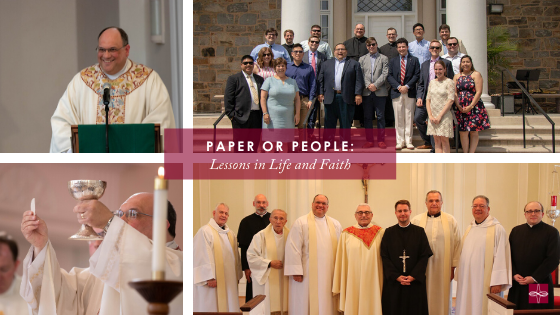
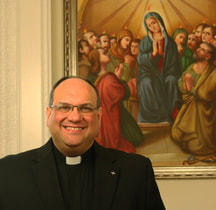
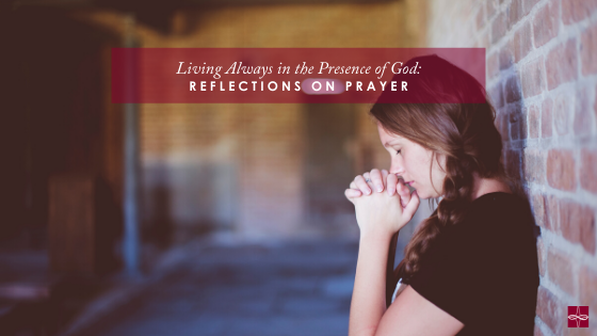
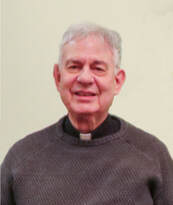
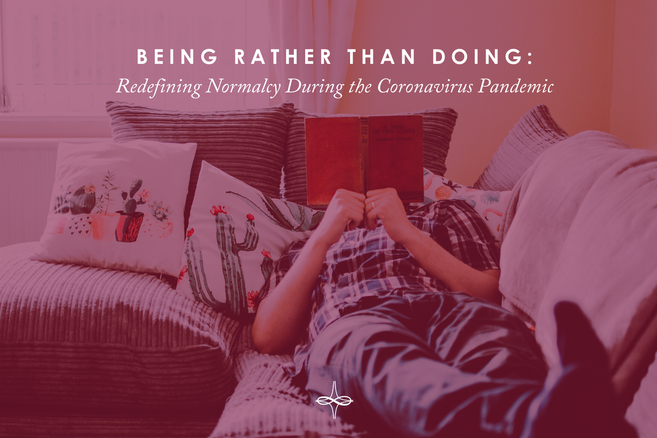

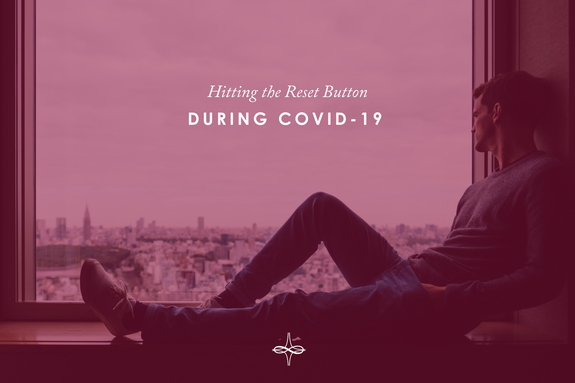
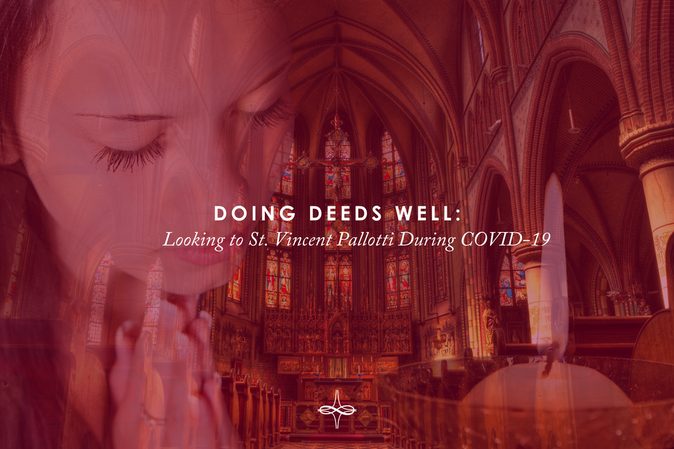
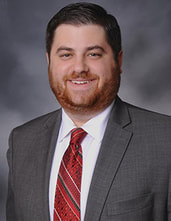
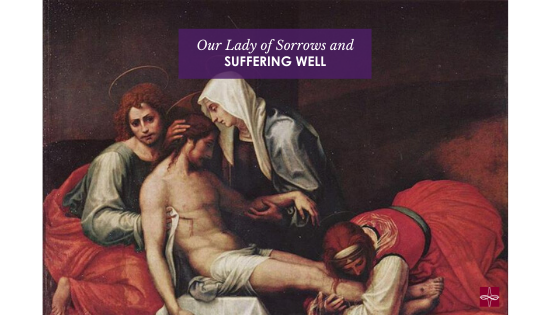

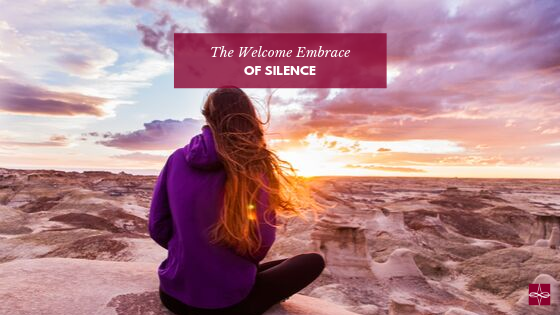

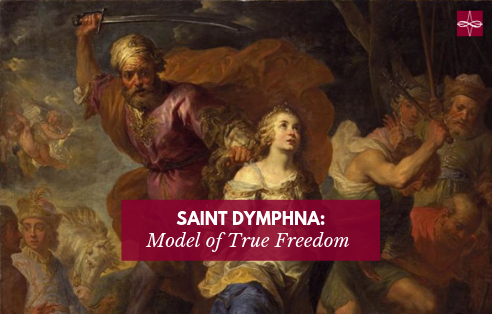

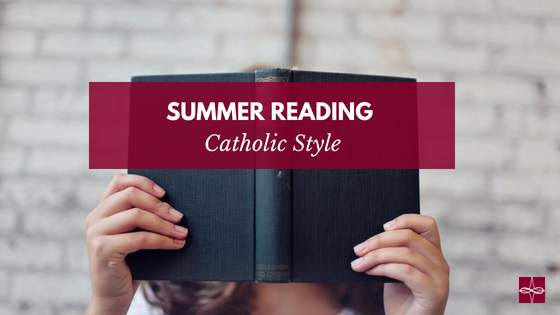

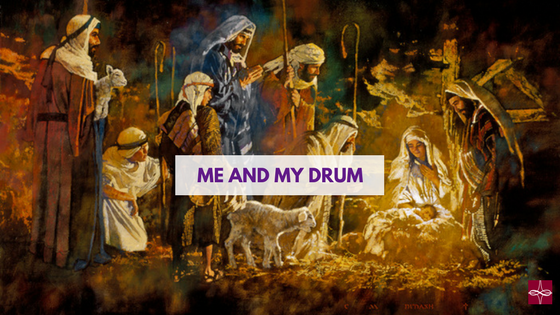

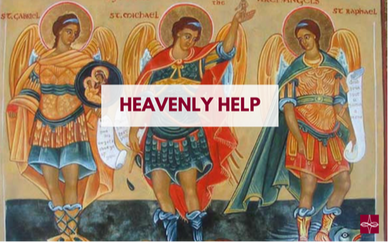

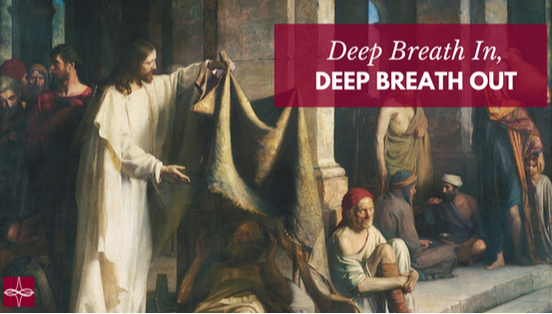



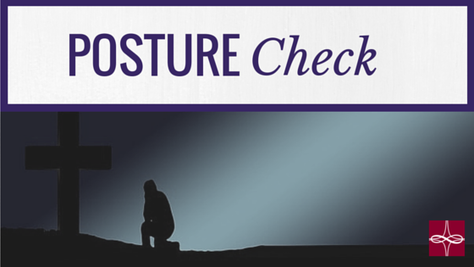

 RSS Feed
RSS Feed